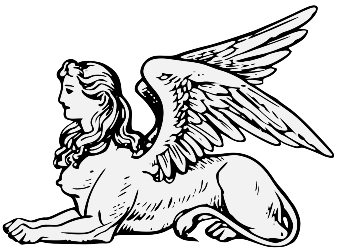Nephilim, also Nephalem and Naphils (singular: Naphil) are the hybrid offspring of the "Sons of God," with the "Daughters of Men" in the Hebrew bible. They are first mentioned in the Book of Genesis, chapter 6, before the flood narrative.
The passage in Genesis never explains who the "Sons of God" or the "Daughters of Men" are, but in some Jewish traditions, and extra-biblical writings, most notably The Book of Enoch (First Enoch), The Sons of God are said to be rebel angels that came to earth due to their lust for human woman and sired the Nephilim with them.
This passage in Genesis, and the interpretation that the Sons of God are angels, has been problematic for most later Jews and Christians due to the common belief that angels are unable to sexually reproduce. Because of this there is another interpretation common in Christianity that the Sons of God were a race of people descended from Adam and Eve's son Seth, while the daughters of men were a race of people descended from Adam and Eve's first son Cain, who was cursed after killing his brother Abel due to jealousy. Another, controversial, theory is that the Sons of God are the sons of El in Canaanite religion, or in other words acknowledges the existence of polytheistic gods.
The Nephilim are referred to as "heroes of old" in Genesis, which implies that they might be an explanation for the great heroes and demigods found in neighboring polytheistic cultures, such as Gilgamesh. The Nephilim are also described as being giants.
Myths & Legends[]
The term "Nephilim" occurs twice in the Hebrew Bible, both in the Torah. The first is Genesis 6:1-4, immediately before the story of Noah's ark:
- When human beings began to increase in number on the earth and daughters were born to them, the sons of God saw that the daughters of humans were beautiful, and they married any of them they chose. Then the Lord said, “My Spirit will not contend with[a] humans forever, for they are mortal; their days will be a hundred and twenty years.”
- The Nephilim were on the earth in those days—and also afterward—when the sons of God went to the daughters of humans and had children by them. They were the heroes of old, men of renown[1].
Genesis tells of the Nephilim before and after the Flood, most notably in the Hebrew Bible. According to Genesis 7:23, the Nephilim were destroyed in the Flood, but Nephilim are reported after the Flood, including:
Large as Giants[]
The second appearance of the Nephilim in is Numbers 13:32-33, where the Hebrew spies report that they have seen fearsome giants in Canaan:
- And they spread among the Israelites a bad report about the land they had explored. They said, “The land we explored devours those living in it. All the people we saw there are of great size. We saw the Nephilim there (the descendants of Anak come from the Nephilim). We seemed like grasshoppers in our own eyes, and we looked the same to them[2].”
In Amos 2:9, while not using the word "nephilim", Yahweh reminds the prophet that he "destroyed the Amorites before you, whose height was as the height of cedar trees". Genesis 6:4 says "the nephilim were on the earth in those days (before the Flood), and also after", and most later compositions and translations, including the Septuagint, therefore understand the nephilim to be giants.
The "Mighty Fallen" and "Ancient Warriors"[]
Ezekiel 32:27 speaks of "the fallen mighty (gibborim nophelim, >גִּבֹּורִים , >נֹפְלִים) of the uncircumcised, which are gone down (yaradu, >יָרְדֽוּ) to the grave with their weapons of war"; a change to the vowels would produce the reading gibborim nephilim. The nature of the nephilim is complicated by the ambiguity of Genesis 6:4, "the sons of God joined with the daughters of mankind, who bore them children - they were the ancient warriors, the men of renown", which leaves it unclear whether they are the "Sons of God" or their offspring who are the "ancient warriors". Richard Hess in The Anchor Bible Dictionary takes it as read that the nephilim are the offspring, as does P. W. Coxon in Dictionary of deities and demons in the Bible.
Videos[]
References[]
See also[]
- Aster the Mother of the Nephilim.
External links[]
- Nephilim in Britannica.



